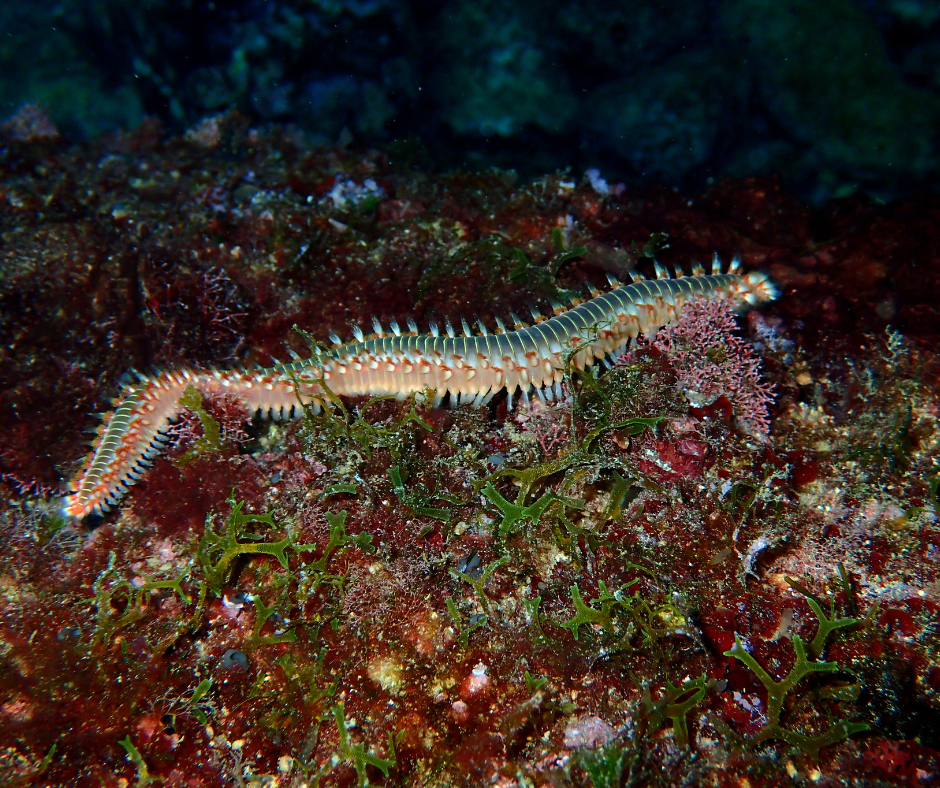“The worm is not just an inhabitant of the sea, but a messenger from the depths who invites us to reflect on the impact of our actions on the planet.”
Among the waves of the Mediterranean lurks a silent witness to climate change, the Vermocane. With its stinging bristles, it reminds us that each species has its role in the ecosystem and that the balance of nature is as delicate as the filaments that adorn it.
The Vermocane (Hermodice carunculata), or ‘fireworm’, is a marine annelid that is becoming increasingly common in Mediterranean waters.
This animal, native to tropical waters, has found an ideal habitat in the Mediterranean due to recent heatwaves that have favoured its proliferation; it is also a bio-indicator of climate change.
With an average length of 20-30 centimetres, it is a voracious predator of corals, gorgonians and other marine species.
It is known for its stinging spines that can cause allergic reactions such as oedema and itching, as well as more severe symptoms such as nausea and dizziness.
Its presence has become a concern for bathers but also fishermen, as it can cause significant damage to fishing nets and local marine fauna.
This is a clear example of how the climate crisis is affecting our daily lives and the marine environment; it underlines the need for strong environmental policies and a collective effort to limit the introduction of non-native organisms into ecosystems.
Maintaining a rich biodiversity is the best way to protect our seas.
Play for the Planet
